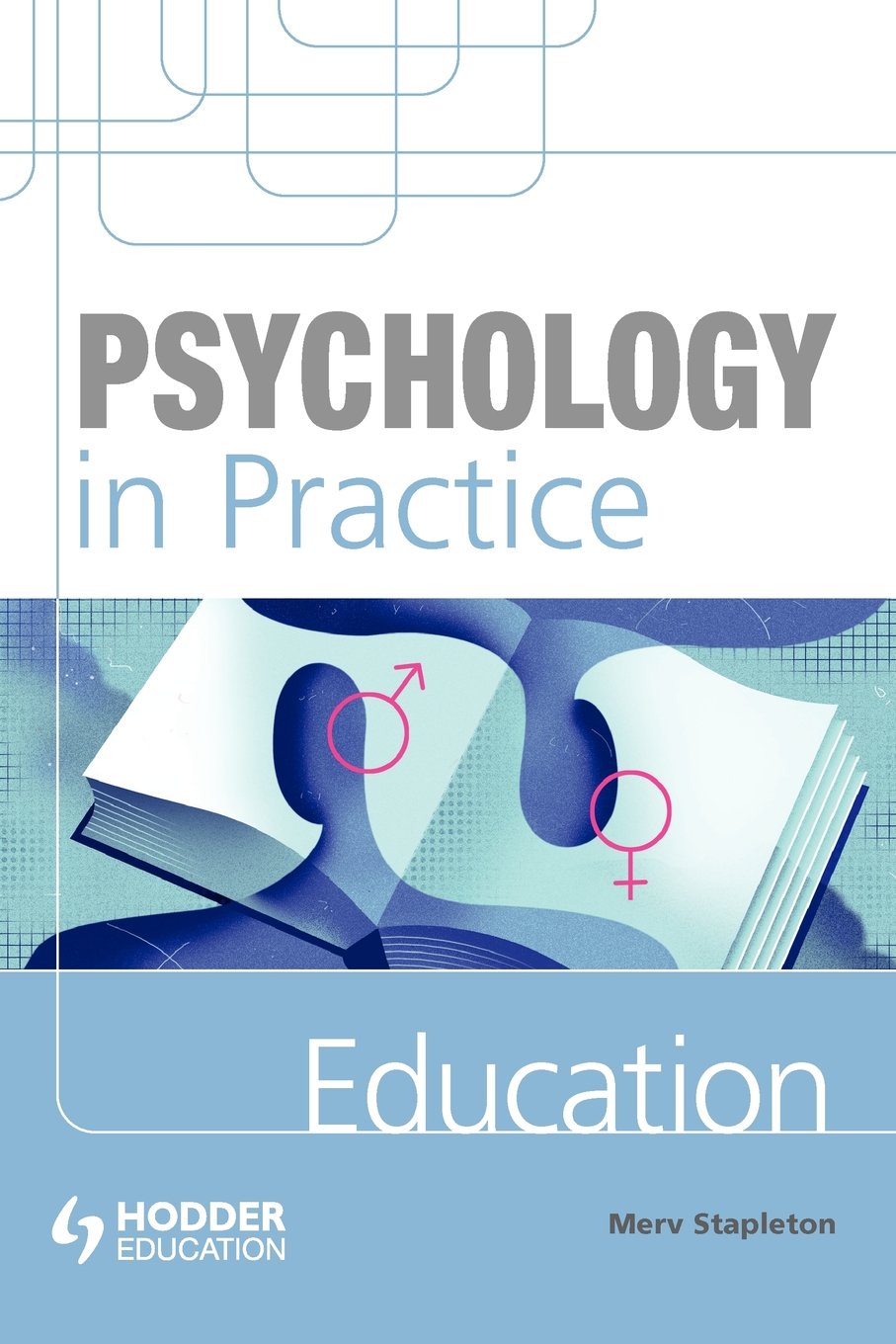
Psychology In Practice: Education (Psychology In Practice Series)
FREE Shipping
Psychology In Practice: Education (Psychology In Practice Series)
- Brand: Unbranded

Description
Madigan, K., Cross, R. W., Smolkowski, K., & Stryker, L. A. (2016). Association between schoolwide positive behavioural interventions and supports and academic achievement: A 9-year evaluation. Educational Research and Evaluation, 22(7–8), 402–421.
Cognitive tests can give a series of scores that can then be compared to a larger group of children of the same age.For example, Yeomans and Reich (2017) found that sending learners regular prompts to complete online work resulted in a 29% increase in courses completed. They concluded that sending regular reminder prompts is an inexpensive and effective way to enhance online course completion. For example, Zysberg and Schwabsky (2020) examined the relationships between positive school culture or climate, students’ sense of self-efficacy, and academic achievement in Israeli middle and high school settings. In these stages, we match our basic concepts, or “schemas,” of reality with experiences in the world and adjust our schemas accordingly. There are a range of tools or techniques that an EP might use to try and make sense of the situation they are working with. It’s impossible to list all of them and the best advice would be to talk to your EP to ask them what they are doing and why. We’ve tried to cover the most common ones below: Having a conversation As well as working with children who experience a wide range of needs, we work a lot with parents, teachers and other professionals. This work is wide ranging and benefits all children. Some examples of this type of working include:
Such proactive behavioral supports include maximizing structure in classrooms, teaching clear behavioral expectations in advance, regularly using prompts with students, and actively supervising students (Simonsen & Myers, 2015). They work in a variety of teaching, research, and applied settings (e.g., K–12, universities, the military, and educational industries like textbook and test developers). Here we aim to describe and explain the EP role in plain english, and we hope this resource is useful to young people, parents and carers, schools and educational psychology services. Cognitivists are also keenly interested in “neuroplasticity,” or how learning causes new connections to be made between individual brain cells (neurons) and their broader neuronal networks.
Educational Psychology vs School Psychology
Cognitive assessments can be done in lots of different ways and a cognitive assessment is not the same as a cognitive test. As mentioned in the discussion of Nathaniel Gage’s theory of effective teaching, student motivation is an important component to assess and encourage. Some scholars have also held that from a behaviorist perspective, learners are more reactive to environmental stimuli than active or proactive in the learning process (Ertmer & Newby, 2013). Having a conversation can often be the most useful way of trying to understand what is going on, from different perspectives. Parents, teachers and children will all have different views about ‘the problem’ and it’s important to try to understand these views. EPs might call these conversations different things e.g. a consultation or a joint problem solving conversation. According to the U.S. Bureau of Labor Statistics, career opportunities in psychology will grow at a healthy rate of about 14% over this decade, and educational psychology is expected to keep pace.
- Fruugo ID: 258392218-563234582
- EAN: 764486781913
-
Sold by: Fruugo
